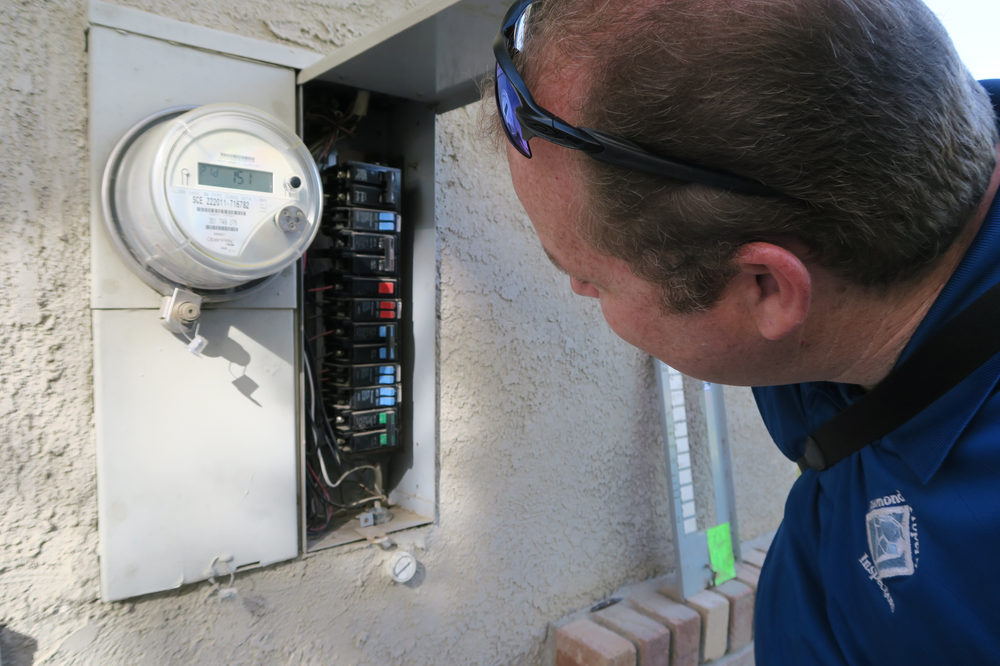Whether you are about to purchase a new home or have been living in your home for decades, electrical safety should be a top priority. Even in brand new homes, there can be electrical issues that could lead to a house fire or other serious consequences. What are some of the most common electrical problems in California homes, and how can you detect them?
Lights Flickering in Your House
Lights flickering is one of the most common electrical issues that many homeowners have, and it often indicates a poor electrical connection. What lights seem to be flickering the most in your home? Are there any connections between things happening outside or inside and the flickering? It’s important to note that, if the flickering only occurs for a split second when a major system like the air conditioning turns on, it might not be indicative of a bigger issue.
Breakers Tripping Frequently
Circuit breakers are a powerful safety tool in your home, even if they might seem like more of a nuisance than a helpful tool sometimes. Circuit breakers trip, or turn off, because the system has detected there is a chance for electrocution or a house fire starting. If your breakers trip occasionally when there are a lot of devices plugged in, it is not necessarily a warning sign. However, if there is a darkened area around a switch or your breakers flip frequently, you should have a home inspection performed.
Needing to Reset GFCI Outlets Often
GFCI outlets are commonly used in parts of the home where moisture is common, like the basement, bathroom, or kitchen. GFCI outlets are triggered when the device detects that there is too much current or voltage coming to the outlet. This surge of electricity can lead to a shock or damage to your appliance, so the outlet turns off and must be reset. Sometimes GFCI outlets need to be replaced due to old age, but consistent problems indicate that your appliances might need more power than the outlet can supply.
Outlets That Are Dead
Over time, outlets can wear out and become impossible to use, or dead. If you find plugs falling out instead of staying in or outlets that are severely discolored, it’s a sign that the outlet might need to be replaced. However, if you find that outlets in your home are dying without something obviously wrong or the breaker tripping, a home inspector can help pinpoint the exact cause.
Going Through Lightbulbs Frequently
When lightbulbs are burning out frequently or you find yourself needing to replace them often, it’s a sign that you could be experiencing electrical issues. Some of the most common reasons why bulbs are burning out often include:
Bulbs screwed in too tightly
Poor wiring on the circuit
Wattage that is higher than the fixture or lamp
Loose socket on the fixture
When you are choosing lightbulbs for your electrical fixtures, you should make sure that you pay close attention to the maximum wattage. If you use bulbs that draw more wattage than the lamp was designed for, the wires can get too warm and eventually become a fire hazard. If you have a built-in fixture and are not sure what the wattage is, a home inspector can help to assess the fixture and potentially upgrade the wattage if that is what you’d prefer.
Using Cords the Wrong Way
One of the most common electrical issues in homes around the state is using cords and plugs improperly. This is something that you can practice every day, but a home inspection can also identify problems. Make sure that power cords are placed in places where they will not be tripped on. If cords are damaged, brittle, or fraying, they should be replaced. Three-pronged plugs should only be plugged into three-pronged outlets or GFCI outlets.
How Do You Know There Are Electrical Issues in Your Home?
The best way to learn about the exact electrical issues that might be occurring in your home is with a home inspection from a professional home inspector. Home inspectors have years of experience looking through homes just like yours for common issues with a variety of systems, including your plumbing and electrical systems. If you have specific concerns, your inspector can take extra care in examining your systems and educate you about the best path forward for repairs.




